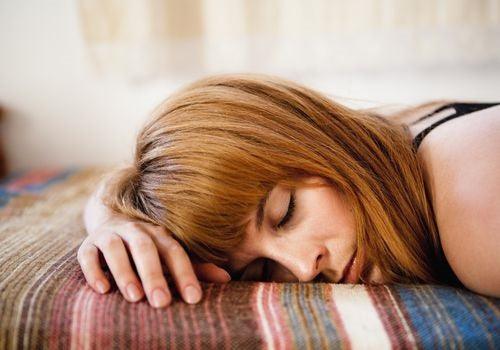It can be a delicate topic and one that may provoke unnecessary angst or even guilt: naps. A nap can be a wonderful indulgence, a daily plague, or a source of anxiety about how it might affect your night’s sleep. Though naps can relieve sleep deprivation, they may be harmful if you have insomnia and make it worse. Learn about the relationship between naps and nighttime sleep and whether or not you need to avoid them.
The Timing of Naps and Sleep Needs
Within a 24 hour period, a nap is understood to be a shorter episode of sleep that occurs apart from the longest period of overnight sleep. While the National Sleep Foundation recommends getting around eight hours of sleep each night, surveys suggest that half of people get less than this amount.1
Naps may be relatively brief, lasting only minutes, or they may be prolonged over hours. The strongest desire for daytime sleep in adults occurs in the mid-afternoon, typically between 1 p.m. and 3 p.m.
Why Afternoon Sleepiness Occurs
Sleepiness in the afternoon may be increased due to a natural lull in the alerting system of the circadian rhythm, which is your body's internal clock. While you're awake, this system counteracts the building sleepiness associated with the accumulation of a chemical called adenosine. The longer you stay awake, the sleepier you become, a concept called sleep drive.2
Conditions That Increase Sleepiness
The desire to take a nap in the afternoon may be stronger if you're sleep-deprived and getting less sleep than you need to feel adequately rested. Most adults' sleep needs are seven to nine hours of sleep nightly to feel rested. Excessive daytime sleepiness is the most common symptom of sleep deprivation. The desire to nap may also be more pronounced if you have poor sleep quality due to untreated sleep disorders, like sleep apnea and narcolepsy.
How Naps Can Undermine Sleep
There are many people who can take a nap without undesirable effects. This is especially true if you're not getting enough sleep at night to meet your sleep needs. These naps may help you to catch up from inadequate sleep, relieve sleepiness, and avoid the health effects of sleep deprivation. Those with other sleep disorders may similarly be able to sleep more in the day without any difficulty falling or staying asleep at night. However, sleep during the day can affect sleep at night for some people.
Short, Early Naps Are Best
If you take a nap in the afternoon, it's a little like hitting reset on the timer that controls your ability to return to sleep. A short nap, typically 15 to 20 minutes, will affect you less than a nap that lasts for hours.6 In addition, a nap in the early afternoon may allow you 10 hours in which to build up the desire for sleep again. However, a nap in the hours preceding bedtime may make it more difficult to get back to sleep later.
A Word From Verywell
You should avoid taking naps if you find that your nighttime sleep becomes more difficult after napping. If you require frequent or prolonged naps, you should consider whether or not you're getting enough sleep at night. If you're getting sufficient hours, but the sleep is still not restorative, you should speak with a sleep specialist about the disorders that can undermine the quality of your sleep.










